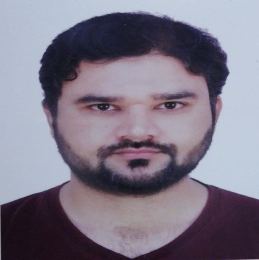Keynote Forum
Zahra Saribal
University of Hull, UK UKTitle: Overcoming Electrode Polarization Effects: Development of a Label-Free Aptamer-Based Nanogap Capacitive Biosensor
Abstract:
A significant impediment to the use of impedance spectroscopy in bio-sensing is the electrode polarization effect that arises from the movement of free ions to the electrode-solution interface, forming an electrical double layer (EDL). The EDL screens the dielectric response of the bulk and its large capacitance dominates the signal response at low frequency, masking information particularly relevant for biological samples, such as molecular conformation changes and DNA hybridization. The fabrication of nanogap capacitors with electrode separation less than the EDL can significantly reduce electrode polarization effects and provide enormous improvement in sensitivity due to better matching of the sensing volume with the size of the target entities. We report on the fabrication of a horizontal thin-film nanogap capacitive sensor with electrode separation of 40 nm that shows almost no electrode polarization effects when measured with water and ionic buffer solutions, thereby allowing direct quantification of their permittivity at low frequencies. Functionalization of the electrodes with thiol-immobilized single strand DNA (ssDNA) aptamers transforms the device into a label-free biosensor that has high sensitivity and selectivity towards the detection of a specific protein. Using this approach, we have developed a biosensor for the detection of human alpha thrombin.
Biography:
Dr Zahra Saribal has 10 years of experimental science research (2010-2020) in Physics, Biology, Chemistry, Engineering and Mathematics. Able to make 3D designs in SolidWork (SOLIDCAM), AutoCAD (desktop) and SketchUp (Pro) software. Electrical circuit design and fabrication with thin film technology. Experience in working with variety of metal thin film fabrication (Au, Cr, Ag, Al) in thermal and Electron-beam evaporator deposition systems, design and fabrication of Metal-Oxide-Semiconductor (MOS) devices, expert in fabrication of Silicon dioxide insulator layers with various deposition heat and Argon and oxygen mixture for different purpose. Experience in operating Scanning Electron Microscope (SEM), Atomic Force Microscope (AFM), White Light interferometer microscopy and optical microscopes for imaging of nano and micro structures. Experience in working inside clean-room environments (highly clean and dust free laboratory), operating different Maskaligner, spin-coating and lithography process for both negative and positive lithography and Lift-off. Building variety of test setups for different purpose with measurements setup connected to computer by using different toolkits in National Instrument (NI) software package (LabVIEW) also write codes in C++ for specific instrument connection.
Speakers
Mehmood Shahid
Sirindhorn International Institute of Technology (SIIT) THAILANDTitle: Cobalt oxide-based nanomaterials as efficient platform for the electrochemical detection of target molecules
Abstract:
There exist and extended list of metal oxides, which have been employed as catalysts for various technological applications. Amongst the library of many metal oxides cobalt oxide Co3O4 has gained envisioned interest by the researchers due to its diverse morphology, high surface to volume ration, simple preparation methods, low cost and well defined electrochemical redox activity. Co3O4 has been employed in various fields such as engineering, medicine and biomedical fields, and in the field of pure sciences. More specifically in the filed electrochemical application it has shown promising results as an electrode material for electrochemical energy storage/conversion applications and electrochemical detection of target molecules. The current study presents the used of Co3O4 and Co3O4 based nanocomposites as efficient platform for the detection of target molecules.
Biography:
Shahid Mehmood has completed his master degree leading to Ph.D. in Physics from University of Malaya with Distinction. He earned his first master’s degree in electronics from Sarhad University of Science and information technology, Pakistan. He is currently pursuing his post-doctoral fellowship in Thammasat University, THAILAND. He has a 3 Years of post-doctoral fellowship experience. His area of research interest is synthesis of 2D materials and their binary and ternary nanocomposite for electrochemical applications such as sensors and detection of water contaminations; besides this he is also working on fuel cells, CO2 reduction, water splitting, solar cells, and supercapacitors applications.


